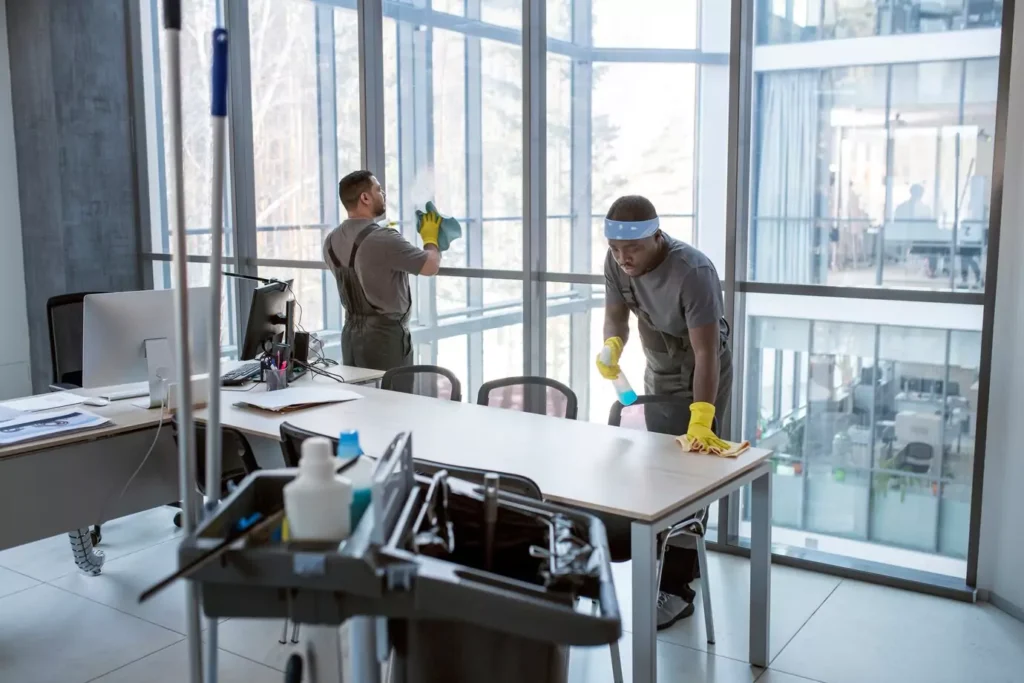Embarking on the journey of starting a cleaning business is an exciting endeavor, but like any entrepreneurial pursuit, it comes with a set of considerations and responsibilities. One fundamental question that often arises is: Do you need a license to start a cleaning business? In this comprehensive exploration, we delve into the regulatory landscape, examining the necessity of licenses, the types of licenses applicable, and additional considerations that aspiring cleaning business owners should bear in mind.

Understanding Licensing Requirements:
1. Legal Foundations:
- The requirement for a license to start a cleaning business is contingent upon local, state, and federal regulations. While certain businesses may operate without specific licenses, the cleaning industry may have its own set of requirements.
2. Local Regulations:
- Start by researching the local regulations in the area where you intend to operate your cleaning business. Municipalities may have varying requirements, and obtaining a license could be a prerequisite to conducting business legally.
3. State Requirements:
- Some states may have specific licensing requirements for cleaning businesses. These requirements could range from a general business license to industry-specific licenses, depending on the services offered.
Types of Licenses for Cleaning Businesses:
1. Business License:
- A general business license is often a basic requirement for operating any business legally. It is issued by the local government and ensures that the business complies with local regulations and zoning laws.
2. Janitorial or Cleaning Service License:
- Some jurisdictions may require a specialized license specifically for janitorial or cleaning services. This license may involve demonstrating competence in cleaning practices and adherence to industry standards.
3. Environmental Permits:
- Depending on the cleaning methods and products used, environmental permits may be necessary. This is particularly relevant for businesses using specialized or potentially hazardous cleaning agents.
4. Occupational Safety and Health Administration (OSHA) Compliance:
- Compliance with OSHA standards is crucial, especially for cleaning businesses that may encounter biohazardous materials or need to ensure the safety of their employees. OSHA compliance may not be a license per se but is a vital aspect of regulatory adherence.
Additional Considerations:
1. Insurance Requirements:
- Even if a specific license is not mandatory, securing adequate insurance for your cleaning business is highly recommended. General liability insurance and workers’ compensation insurance can provide essential coverage in case of accidents or damages.
2. Tax Identification Number:
- Obtain a tax identification number (TIN) or employer identification number (EIN) from the Internal Revenue Service (IRS). This number is essential for tax purposes and may be required when applying for certain licenses.
3. Bonding Requirements:
- Some clients may prefer or require that your cleaning business is bonded. Bonding provides a level of financial protection for clients in case of theft, property damage, or other issues related to your services.
4. Training and Certifications:
- While not licenses in the traditional sense, certifications or training programs in cleaning and janitorial services can enhance your credibility. Clients may prefer or require service providers with documented expertise.
Steps to Ensure Compliance:
1. Research Local Requirements:
- Begin by thoroughly researching the licensing requirements in the specific locality where you plan to operate your cleaning business. This information is typically available on the website of the local government or licensing authority.
2. Contact Relevant Authorities:
- If you have any uncertainties or specific questions regarding licensing, reach out to the relevant local authorities or licensing boards. They can provide clarification on the requirements applicable to your cleaning business.
3. Compile Necessary Documentation:
- Prepare all the necessary documentation required for the license application. This may include proof of identity, business structure details, and any certifications or training records.
4. Submit License Application:
- Once you have gathered the required documentation, submit your license application to the appropriate licensing authority. Pay attention to any associated fees and ensure that your application is complete.
5. Maintain Compliance:
- After obtaining the necessary licenses, it’s crucial to stay informed about ongoing compliance requirements. This includes renewing licenses as needed, updating your business information, and adhering to any changes in regulations.
Conclusion:
In conclusion, the necessity of a license to start a cleaning business is contingent upon various factors, primarily dictated by local, state, and federal regulations. While some jurisdictions may only require a general business license, others may mandate specialized licenses for cleaning services. Additionally, environmental permits, OSHA compliance, and insurance considerations contribute to the regulatory landscape.
Aspiring cleaning business owners should approach the licensing process with diligence, ensuring that they are well-informed about the specific requirements in their area. Beyond licensing, a commitment to maintaining high standards of service, obtaining necessary insurance coverage, and staying updated on industry best practices will contribute to the success and credibility of the cleaning business.
Remember, regulatory requirements may evolve, so staying informed and proactive in compliance efforts will not only ensure legal adherence but also foster trust with clients and contribute to the long-term sustainability of your cleaning business.
Also read: How To Buy A Business: Enterpreneur 101